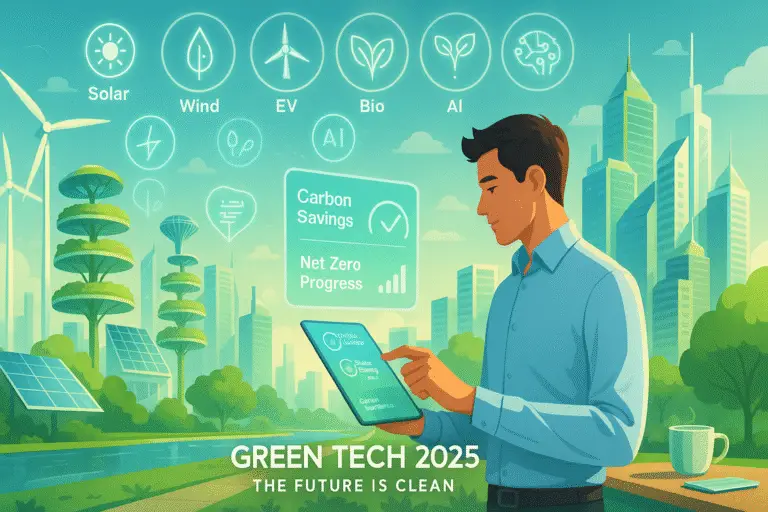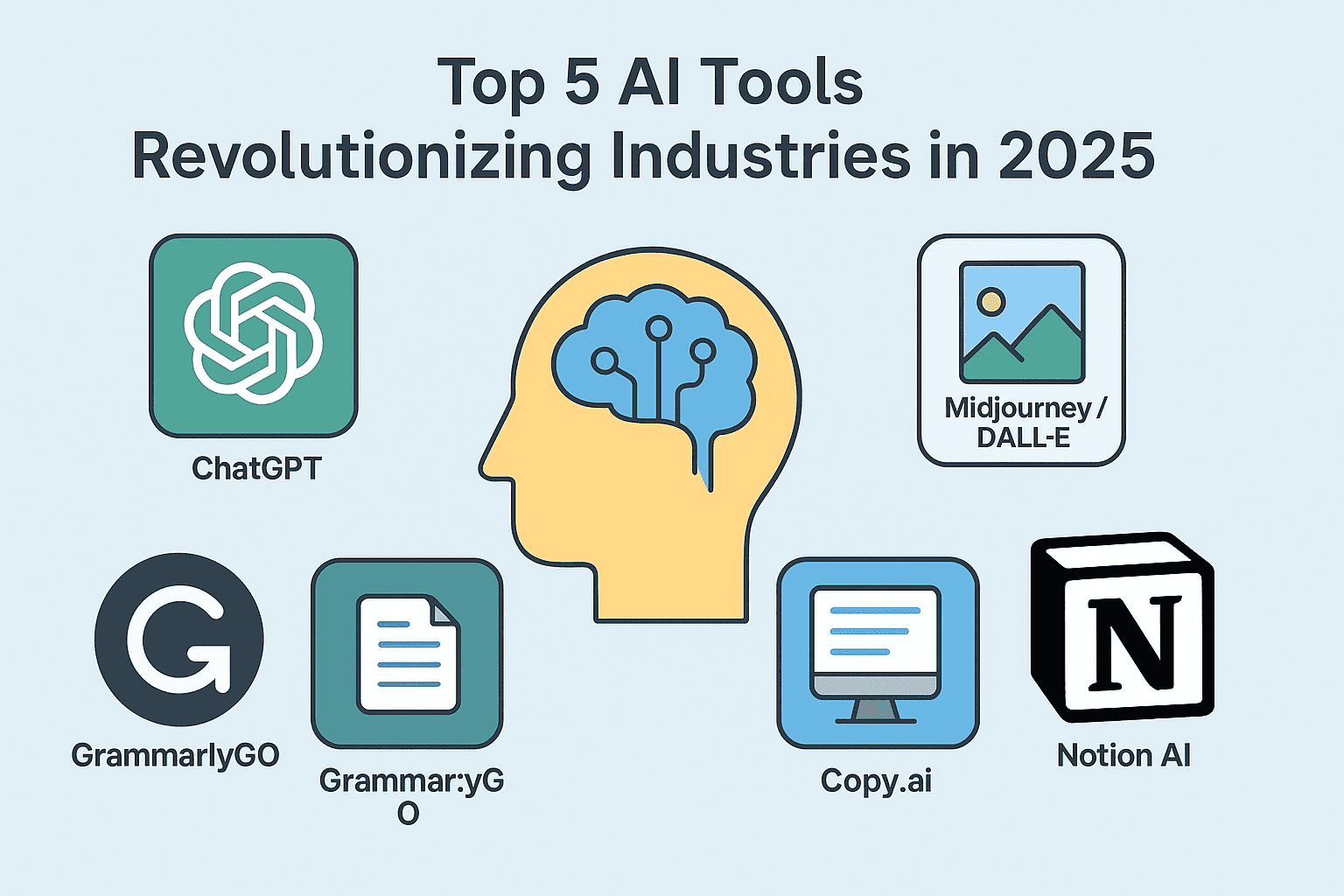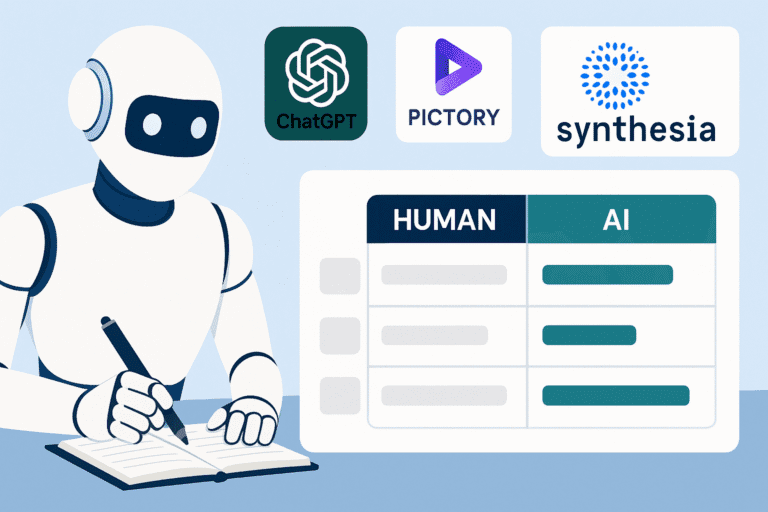How Quantum Computing Is Brilliantly Transforming Technology in 2025

Explore the full impact of quantum breakthroughs in 2025 — from basic principles to real-world innovations.
📚 Table of Contents
- Introduction: Why Quantum Computing Matters in 2025
- What is Quantum Computing? A Beginner-Friendly Explanation
- How Quantum Differs from Classical Computing
- Major Breakthroughs in Quantum Tech by 2025
- Industries Being Transformed by Quantum Computing
- Quantum Computing in Action: Real-World Use Cases
- Companies Leading the Quantum Revolution in 2025
- Key Challenges Facing Quantum Tech Today
- How to Prepare for the Quantum Era
- Conclusion: The Future Is Quantum
1. 🔍 Introduction: Why Quantum Computing Matters in 2025
- In the year 2025, we stand at the threshold of a technological revolution unlike any before it—powered not by classical computers, but by quantum machines that leverage the laws of quantum physics to process information in entirely new ways.
- Quantum computing is no longer a distant dream or an obscure lab experiment. It has emerged as a real-world solution to problems that even the most powerful supercomputers struggle to solve. From designing next-generation drugs in hours (instead of years), to securing communications against future cyber threats, quantum computers are helping reshape the global tech landscape.
- Imagine you’re trying to find the shortest route through a city with 100 traffic lights, and each light changes randomly. A classical computer would test every possibility—an exhausting process. But a quantum computer? It evaluates millions of paths at once, finding the most efficient route in seconds. That’s the kind of leap we’re talking about.
- Governments, startups, universities, and corporations around the globe—including giants like Google, IBM, and Microsoft—are pouring billions of dollars into quantum R&D, racing to achieve what’s known as quantum advantage: the point at which a quantum computer can outperform any classical machine on a practical task.
- In 2025, quantum is not just a tool for scientists—it’s a strategic asset for industries, a career-defining skill for students, and a disruptive force in computing that every forward-thinking individual should begin to understand.
2. ⚛️ What is Quantum Computing? A Beginner-Friendly Explanation
- To understand quantum computing, think about how a regular computer works first. Traditional computers—like your laptop or phone—use bits to process information. Each bit is like a tiny switch that can be either 0 or 1. By combining billions of these bits, classical computers perform calculations and run software.
- But quantum computers don’t play by the same rules. They use qubits (quantum bits), which are far more powerful. A qubit can be 0 and 1 at the same time, thanks to a mind-bending principle of quantum physics called superposition.
🌀 Superposition: Doing Many Things at Once
Imagine flipping a coin. A regular computer sees heads or tails—just one side at a time. But a qubit is like a spinning coin that represents both heads and tails until you look at it. This lets quantum computers perform many calculations at once, massively increasing speed for complex problems.
🔗 Entanglement: The Magic Link Between Qubits
Another magical property is entanglement. When two qubits become entangled, the state of one automatically affects the state of the other—no matter how far apart they are. This creates a powerful connection that allows quantum systems to coordinate and compute in ways classical systems cannot.
🧱 How Quantum Computers Work (Simplified):
- Qubits store information in multiple states
- Quantum gates manipulate qubits (like logic gates in classical computing)
- Quantum circuits are built to solve specific problems
- The output is measured after the system evolves through quantum operations
Quantum computers don’t replace classical computers—they complement them by solving specific, highly complex tasks like molecular simulation, cryptography, optimization, and more.
🧠 Think of it this way:
A classical computer is like using a flashlight to search a dark maze—room by room. A quantum computer is like flooding the whole maze with light all at once, instantly seeing every path.
🧪 Key Quantum Concepts:
- Qubit: Quantum version of a bit; can be 0, 1, or both.
- Superposition: Holding multiple states at once.
- Entanglement: Qubits influencing each other across distance.
- Quantum Gates: Operations that manipulate qubits.
These principles make quantum computing uniquely powerful for solving highly complex problems such as cryptographic key breaking, protein folding, and large-scale optimization.
3. 🔁 How Quantum Differs from Classical Computing
- To truly appreciate the power of quantum computing, it helps to understand how it’s fundamentally different from the classical computers we use every day.
1. Classical Computing: The Digital Workhorse
- Classical computers—whether it’s a smartphone or a supercomputer—are built on bits. A bit can be either a 0 or a 1. Every calculation, app, or system on your device is built from billions of these 0s and 1s, processed in sequential steps.
- They excel at general-purpose tasks: browsing the internet, editing documents, running apps, or doing math. But when it comes to ultra-complex problems with millions of possible combinations (like simulating a protein’s behavior or optimizing a global supply chain), classical systems hit a wall.
2. Quantum Computing: A New Paradigm
- Quantum computers use qubits, which can exist as both 0 and 1 simultaneously (thanks to superposition). When qubits are entangled, the state of one instantly affects the other—no matter the distance—allowing a kind of collaborative processing no classical computer can match.
- This means quantum computers can explore multiple possibilities at once, rather than checking each one individually. For specific tasks, this leads to exponential speedups.
| Feature | Classical Computers | Quantum Computers |
|---|---|---|
| Data Unit | Bit (0 or 1) | Qubit (0 and 1 at once) |
| Processing Style | Sequential | Parallel (exponential) |
| Computational Power | Linear | Exponential |
| Stability | High | Improving |
| Key Advantage | Versatility | Complex Problem Solving |
🧠 Example:
A classical computer might take thousands of years to simulate a molecule with 100 atoms. A quantum system, on the other hand, could solve this in minutes by leveraging quantum parallelism.
4. 🚀 Major Breakthroughs in Quantum Tech by 2025
- 2025 has proven to be a historic turning point in the journey from quantum theory to practical, real-world technology. Breakthroughs in qubit scalability, error correction, hardware stability, and global collaboration have accelerated quantum computing from the lab to the marketplace.
🌐 Global Breakthroughs
🔷 1. Google’s Sycamore 2 Surpasses 1,200 Qubits
- Google’s second-generation quantum processor, Sycamore 2, now runs over 1,200 error-corrected qubits, achieving a massive leap in stability and scalability. It performs specific calculations in seconds that would take traditional supercomputers millions of years.
🔷 2. IBM’s Quantum System Two Launches
- IBM released Quantum System Two, the world’s first modular, scalable quantum computer. With breakthroughs in cryogenic design and quantum memory coherence, it lays the groundwork for fault-tolerant quantum computing—a crucial milestone for enterprise adoption.
🔷 3. Microsoft’s Topological Qubits Edge Closer to Reality
- After years of theoretical work, Microsoft has made tangible progress on topological qubits, which promise greater error resistance and longer coherence times. These qubits are seen as a potential key to building large, stable quantum systems.
🔷 4. Amazon Braket Introduces Hybrid Cloud-Quantum Processing
- Amazon’s cloud platform now allows seamless hybrid execution, letting developers combine classical and quantum workloads in real time. This opens the door for mainstream developers to build next-gen applications using familiar tools.
🇮🇳 India’s Emerging Quantum Scene
- India has stepped up as a rising power in the quantum space, thanks to focused government initiatives, academic innovation, and private investment.
🇮🇳 1. Q-Pi Labs Launches Affordable Quantum Simulators
- Indian startup Q-Pi Labs has developed plug-and-play quantum simulators for universities and startups, helping democratize access to hands-on quantum education and experimentation.
🇮🇳 2. IISc Bangalore and IIT Bombay Roll Out Quantum Degree Programs
- India’s premier institutions are now offering dedicated BTech and MTech programs in quantum technologies, including research in quantum cryptography, sensing, and algorithms.
🇮🇳 3. TIFR Develops Quantum Cryptography Suite
- The Tata Institute of Fundamental Research created India’s first quantum encryption system, capable of securing sensitive communications using Quantum Key Distribution (QKD).
🛰️ Global Security and Communication
🌍 1. China’s Quantum Satellite Network Expands
- China has expanded its quantum-secure satellite communication network, covering intercontinental regions with encrypted data transmission based on quantum entanglement.
🌍 2. EU Launches Quantum Internet Pilot
- The European Union kicked off the EuroQCI (Quantum Communication Infrastructure) initiative, laying down the foundation for quantum internet in 27 member states.
🧬 Scientific & Medical Innovation
🧪 1. Protein Folding Solved in Hours
- Quantum simulations have allowed scientists to predict protein structures in hours instead of months, accelerating drug discovery and vaccine development for diseases like cancer, Alzheimer’s, and emerging viruses.
🧪 2. Climate Modeling at Unprecedented Precision
- Quantum computers are being used to simulate atmospheric behavior and greenhouse gas interaction with unmatched accuracy, helping scientists better forecast and mitigate the impacts of climate change.
🔑 Why These Breakthroughs Matter
- These advancements bring us closer to achieving quantum advantage—a point where quantum computers outperform classical computers in solving real-world problems.
Key areas being unlocked include:
- Accurate molecular modeling for drug discovery
- Post-quantum cryptography and secure communication
- Optimized financial modeling and logistics
- High-efficiency AI training and neural networks
🚨 Did You Know?
In 2025 alone:
- The number of operational quantum computers tripled compared to 2023puting transition from research labs to real-world applications.
- Global quantum investment crossed $50 billion
- Over 40 countries launched national quantum strategies
5. 🏭 Industries Being Transformed by Quantum Computing
- Quantum computing isn’t just a scientific breakthrough — it’s a business and societal game-changer. As of 2025, industries across the globe are being reimagined by the extraordinary capabilities of quantum systems.
- From healthcare to logistics, banking to agriculture, quantum technology is unlocking solutions that were once thought impossible. Here’s a look at how quantum computing is reshaping key sectors:
🏥 1. Healthcare & Pharmaceuticals
Quantum computing is accelerating drug discovery, gene sequencing, and disease modeling at an unprecedented pace.
- Protein Folding: Simulating protein structures in minutes, helping scientists understand diseases like Alzheimer’s and Parkinson’s.
- Drug Design: Testing millions of molecular combinations simultaneously, drastically reducing the time and cost of R&D.
- Precision Medicine: Quantum AI can tailor treatments based on an individual’s genetic profile.
💼 2. Finance & Banking
In the financial world, speed, security, and prediction accuracy are everything — all areas where quantum delivers big.
- Risk Modeling: Quantum algorithms can simulate market fluctuations and portfolio risks in real time.
- Fraud Detection: Faster, smarter anomaly detection using quantum-enhanced machine learning.
- Cryptography: Financial institutions are now exploring post-quantum encryption to secure client data from future cyber threats.
🚚 3. Logistics & Supply Chain
Quantum computers solve optimization problems far faster than traditional systems — a boon for global logistics.
- Route Optimization: Identify the fastest, most fuel-efficient delivery routes across thousands of locations.
- Demand Forecasting: Predict customer behavior more accurately, helping companies manage inventories in real-time.
- Warehouse Automation: Quantum algorithms improve robot navigation and order sequencing.
🧠 4. Artificial Intelligence & Machine Learning
Quantum computing supercharges AI by massively reducing the time it takes to train and fine-tune models.
- Faster Training: Complex deep learning models can be trained in hours instead of weeks.
- Pattern Recognition: Quantum ML enhances image, voice, and text recognition tools.
- Natural Language Processing: Improved quantum-enhanced NLP could revolutionize chatbots and real-time translation.
🌍 5. Environmental Science & Climate Tech
Climate modeling is one of the most complex simulations in science — and one of the most urgent. Quantum tech brings new hope.
- Atmospheric Modeling: Quantum simulations help predict long-term climate trends with higher precision.
- Carbon Capture: Testing materials at the atomic level to improve CO₂ storage and recycling.
- Renewable Energy: Optimizing solar panel materials, battery chemistry, and grid efficiency.
📎 Internal Link: Top 7 Personal Finance Tips for 2025
🏙️ 6. Smart Cities & Urban Planning
Quantum optimization is helping urban planners and governments redesign cities for efficiency and sustainability.
- Traffic Management: Real-time traffic flow optimization to reduce congestion and pollution.
- Utility Grid Balancing: Quantum-enhanced algorithms to stabilize energy demand across districts.
- Emergency Response: Quantum models simulate disaster scenarios to improve readiness and resource allocation.
🛡️ 7. Cybersecurity & Defense
With the power to break classical encryption, quantum has also become essential for building quantum-safe security.
- Quantum Key Distribution (QKD): Enables unbreakable encryption using the laws of quantum mechanics.
- Secure Communications: Government and defense agencies are investing in quantum-secure internet frameworks.
- Threat Simulation: Predicting potential attack vectors and intrusion patterns using quantum simulation.
🌾 8. Agriculture & Food Technology
Quantum computing is quietly revolutionizing how we feed the planet.
- Crop Optimization: Simulate soil conditions, climate impact, and genetic traits to maximize yield.
- Supply Chain Traceability: Quantum-enhanced sensors and tracking systems provide ultra-secure food provenance.
- Water Management: Simulate and optimize irrigation systems for sustainable farming.
6. 🌍 Quantum Computing in Action: Real-World Use Cases
- Quantum computing is no longer confined to theoretical physics or experimental labs. In 2025, real-world companies and governments are already applying quantum systems to solve problems that classical computers simply can’t handle efficiently.
💊 1. Drug Discovery – Faster, Smarter, Cheaper
- Traditional drug discovery takes years and billions of dollars. Quantum computing accelerates this process by simulating how molecules behave at the atomic level—something classical computers struggle to do efficiently.
📌 Example:
- Pfizer and Google Quantum AI are using quantum algorithms to simulate protein-ligand interactions, helping to discover antiviral and cancer drugs faster than ever beforears, reducing human suffering and healthcare costs.
🏦 2. Financial Risk Management – Real-Time Insights
- Quantum computers can process massive datasets and run complex simulations to predict financial risks and optimize portfolios instantly—especially useful in volatile markets.
📌 Example:
- Goldman Sachs and QC Ware have built quantum algorithms that price options and simulate credit risk scenarios faster than traditional models.
🚀 3. Space Research – Exploring the Final Frontier
- Organizations like NASA are using quantum systems to simulate spacecraft fuel efficiency, orbital mechanics, and interplanetary navigation.
📌 Example:
- NASA is leveraging hybrid quantum-classical systems to optimize space mission logistics, reducing fuel costs and maximizing payload efficiency.kable encryption, critical for defense, finance, and personal privacy.
🔐 4. Cybersecurity – Building the Unhackable Internet
- Quantum computing is not just a threat to current encryption—it’s also the solution. Quantum Key Distribution (QKD) provides a way to share information with unbreakable security.
📌 Example:
- China’s quantum satellite, Micius, has successfully demonstrated QKD over thousands of kilometers, marking the beginning of the quantum internet era.missions.
🧠 5. Artificial Intelligence – Supercharging Machine Learning
- Quantum-enhanced AI can process and learn from massive, complex datasets exponentially faster than classical systems, leading to smarter and more adaptive models.
📌 Example:
- Microsoft Azure Quantum is using quantum-inspired algorithms to improve training time for deep learning models in NLP and robotics.
🏙️ 6. Smart Cities – Optimizing Urban Life
- Quantum computing helps urban planners manage city logistics, power grids, and emergency response systems using real-time optimization.
📌 Example:
- Volkswagen used a quantum algorithm in Barcelona to optimize traffic flow during rush hour—minimizing congestion and fuel use.
🧬 7. Genetics and Genomics – Understanding Life Itself
- Quantum computers are used to model DNA and genetic mutation patterns faster and more accurately, helping in disease prediction and personalized medicine.
📌 Example:
- Researchers at MIT and IBM are simulating gene mutations using quantum systems to better understand hereditary diseases like cystic fibrosis and Huntington’s disease.
🌱 8. Climate Science – Modeling a Better Planet
- Climate models involve millions of variables and interdependencies—perfect for quantum computing.
📌 Example:
- The U.S. Department of Energy is using quantum simulations to forecast climate patterns, predict natural disasters, and optimize carbon capture strategies.
🔬 9. Materials Science – Designing the Future
- Quantum computers can simulate atomic interactions to help design better batteries, superconductors, and nanomaterials.
📌 Example:
- Mercedes-Benz is partnering with quantum startups to discover new battery materials that can power electric vehicles longer and more efficiently.
7. 🏢 Companies Leading the Quantum Revolution in 2025
- In 2025, the quantum computing race is no longer theoretical—it’s a high-stakes global competition. Tech giants, specialized startups, and even emerging players from countries like India and China are all investing heavily to dominate the next era of computation.
- Here are the companies that are pushing the boundaries of what’s possible and leading the quantum charge:
🔷 1. IBM Quantum – The Global Pioneer
IBM has been at the forefront of quantum research for over two decades. In 2025, its Quantum System Two marks a huge leap with modular scalability, cloud integration, and improved qubit fidelity.
- Offers the largest public-access quantum cloud via IBM Quantum Experience.
- Focuses on quantum education through Qiskit and global hackathons.
- Targeting full fault-tolerant quantum computing by the end of the decade.
📌 Visit: IBM Quantum Official Site
🔶 2. Google Quantum AI – Chasing Quantum Supremacy
Google’s Sycamore 2 system now exceeds 1,200 stable qubits. The company has set the benchmark for quantum supremacy—solving problems classical computers cannot.
- Focused on practical use-cases like AI, cryptography, and simulation.
- Working on large-scale error correction models.
- Major partnerships with academic labs and pharmaceutical companies.
📌 Visit: Google Quantum AI
🟦 3. Microsoft Azure Quantum – Cloud Meets Quantum
Microsoft is merging quantum with cloud to make it developer-friendly. Its Azure Quantum platform allows researchers to experiment with different quantum hardware providers via a single cloud-based interface.
- Promoting topological qubits—a promising but complex approach.
- Offers developer access to Q#, a specialized quantum programming language.
- Deep investments in hybrid quantum-classical models.
📌 Visit: Azure Quantum
🧪 4. IonQ – Quantum as a Service
IonQ, a startup born from university research, has made rapid progress using trapped ion technology, known for precision and reliability.
- Listed on the NYSE and expanding quantum cloud access globally.
- Partnered with Amazon, Google, and Microsoft for hardware access.
- Offers quantum-as-a-service (QaaS) to enterprises.
📌 Visit: IonQ Official Site — Dofollow Link
🌐 5. D-Wave Systems – Real-Time Quantum Optimization
Based in Canada, D-Wave focuses on quantum annealing, a different model ideal for optimization tasks like logistics and supply chains.
- Has commercial clients including Volkswagen and Lockheed Martin.
- Released the Advantage2 processor in 2025 with 7,000+ qubits.
- Popular for real-world applications like manufacturing and AI.
📌 Visit: D-Wave Systems
🇮🇳 6. TCS Quantum Solutions (India) – India’s Enterprise Leader
Tata Consultancy Services has launched quantum innovation labs across India, developing enterprise solutions in finance, logistics, and cybersecurity.
- Building platforms that combine classical and quantum models for practical use.
- Working closely with Indian universities and the National Quantum Mission.
- Offering quantum consulting for large corporations across Asia.
📌 Visit: TCS Research
🇨🇳 7. Alibaba DAMO Academy (China) – Quantum in E-Commerce
China’s Alibaba is developing quantum communication systems for secure data transmission and e-commerce logistics through its DAMO research wing.
- Has built quantum networks for city-wide encryption.
- Partnered with Chinese universities to push hardware boundaries.
- Focused on encryption, AI, and optimization.
🌱 8. PsiQuantum – The Billion-Dollar Dark Horse
PsiQuantum, a California-based startup, is working on photonic quantum computing—a method using light instead of superconductors.
- Aims to build a 1 million qubit system using existing chip fabrication techniques.
- Secured billions in funding from government and private investors.
- Targeting energy, pharma, and simulation use-cases.
💡 Why These Companies Matter
These organizations aren’t just building tech—they’re shaping the future:
- They’re investing in education, building cloud platforms, and launching real-world pilots.
- They’re hiring thousands of quantum engineers, physicists, and developers.
- They’re creating the infrastructure for the quantum economy of tomorrow.
🧭 What to Watch in 2025–2030
✅ Race to 10,000+ qubit stable processors
✅ Fully fault-tolerant commercial quantum machines
✅ Global rollout of post-quantum encryption standards
✅ Rise of quantum cloud marketplaces for developers
8. ⚠️ Key Challenges Facing Quantum Tech Today
- Quantum computing is brimming with promise—but it’s not without serious obstacles. Despite all the progress in 2025, this technology still faces technical, economic, and educational hurdles that must be overcome before it can achieve mainstream adoption.
Let’s break down the major challenges holding quantum computing back:
❌ 1. Qubit Stability & Decoherence
The Challenge: Qubits are incredibly delicate. They lose their quantum state quickly—a phenomenon called decoherence—which limits how long they can perform calculations.
- Even the best qubits today only remain stable for milliseconds.
- Environmental noise (heat, radiation, vibrations) can easily collapse their state.
- This limits the complexity of the algorithms quantum computers can run.
The Fix: Companies are developing error correction techniques and more robust qubit designs like superconducting, topological, and photonic qubits.
❌ 2. High Error Rates
The Challenge: Quantum computers still make a lot of mistakes. Unlike classical bits, qubits are more error-prone due to their probabilistic nature.
- Without proper error correction, outputs can be unreliable.
- Current systems often require thousands of physical qubits to form just one stable “logical qubit.”
The Fix: Research is focused on scalable quantum error correction codes (QEC) and new hardware approaches that reduce noise and improve fidelity.
❌ 3. Scalability
The Challenge: Scaling up from a few qubits to thousands or millions is extremely difficult.
- Quantum systems require extremely low temperatures (close to absolute zero), making large-scale machines hard to build and operate.
- Current designs don’t yet support mass production like classical chips do.
The Fix: Modular quantum systems (like IBM’s Quantum System Two) and photonic-based quantum chips offer promising paths to scalability.
❌ 4. Infrastructure Costs
The Challenge: Quantum hardware is expensive and complex. It requires:
- Cryogenic refrigerators
- Vibration-free labs
- Custom electronics
- Highly trained quantum engineers
Only governments, top universities, or large enterprises can currently afford full-scale quantum setups.
The Fix: Cloud-based access (like IBM, Azure, Amazon Braket) is helping democratize usage without requiring physical ownership.
❌ 5. Talent Shortage
The Challenge: Quantum computing is highly specialized and lacks a large talent pool. Few people are trained in quantum mechanics, algorithms, and quantum programming.
- Quantum engineers, software developers, and physicists are in short supply.
- There’s also a skills gap between academia and industry requirements.
The Fix: Universities are launching new quantum tech programs. Companies like IBM, Google, and edX offer free courses in Qiskit, Q#, and quantum basics to bridge the gap.
❌ 6. Lack of Standardization
The Challenge: There’s no common standard for quantum hardware or software.
- Different vendors use different qubit types (trapped ion, superconducting, photonic, etc.).
- There’s no unified quantum programming language or hardware abstraction layer.
The Fix: Initiatives like QIR Alliance (Quantum Intermediate Representation) and Qiskit/Q# are moving toward standardization—but global consensus is still forming.
❌ 7. Security Risks from Quantum
The Challenge: Ironically, quantum computing itself poses a cybersecurity threat.
- Once quantum computers reach a certain scale, they could break modern encryption algorithms (like RSA and ECC) in minutes.
- This creates urgency to migrate to post-quantum cryptography (PQC) before large-scale quantum machines arrive.
The Fix: Governments and tech firms are testing PQC algorithms approved by NIST to ensure future-proof security.
❌ 8. Unrealistic Expectations & Hype
The Challenge: Quantum computing is often hyped as a magical fix-all. In reality, it will only outperform classical computers for specific, complex problems—not for daily computing tasks.
- Public expectations can lead to disappointment if results are slower than media claims.
- Investors and businesses may lose interest if ROI isn’t immediate.
The Fix: Clear education, realistic timelines, and targeted use-cases will help align expectations with reality.
❌ Top Barriers:
- Decoherence: Qubits lose information too quickly.
- Error Rates: Current machines lack 100% precision.
- Scalability: Building beyond 1000 stable qubits remains tough.
- Talent Gap: Fewer than 10,000 people worldwide can program quantum systems.
9. 🧭 How to Prepare for the Quantum Era
You don’t need to be a physicist to get involved in quantum computing. Here’s how anyone—from students to professionals—can prepare:
🎓 Learn Quantum Fundamentals:
- Free resources: IBM Quantum Experience, edX, Qiskit.org
- Beginner-friendly books: Quantum Computing for Everyone by Chris Bernhardt
💻 Get Hands-On:
- Use IBM’s free quantum circuit composer
- Try coding in Qiskit (Python) or Q# (Microsoft)
💼 Invest in the Future:
- Explore quantum-focused ETFs like Defiance QTUM or ARKQ
- Monitor startups on platforms like Crunchbase or CB Insights
📚 Stay Informed:
- Follow blogs like Madhav Info, Nature Quantum Computing
📎 Internal Link: Beginner’s Guide to Green Tech Innovations in 2025
10. 🔮 Conclusion: The Future Is Quantum
Quantum computing in 2025 is no longer just a dream—it’s a functional, fast-evolving reality. Its ability to solve impossible problems is unlocking new doors in healthcare, finance, infrastructure, and environmental science.
Whether you’re a developer, investor, student, or policymaker, the quantum age demands your attention. Those who prepare today will lead the innovation of tomorrow.
📌 Final Summary:
- ✅ Quantum is now a global innovation priority
- ✅ 2025 has seen over 1,000-qubit systems emerge
- ✅ Real-world use cases span medicine to machine learning
- ✅ Training, education, and investment opportunities abound
- ✅ Everyone can get started with the right mindset and tools






